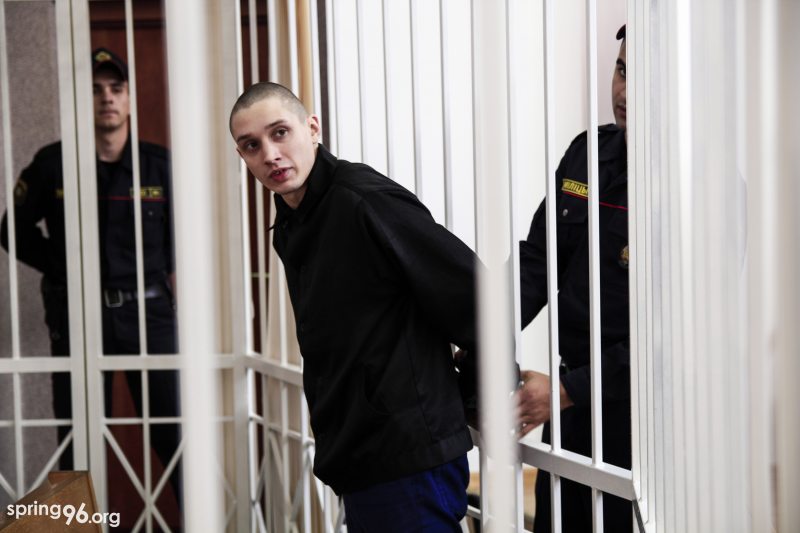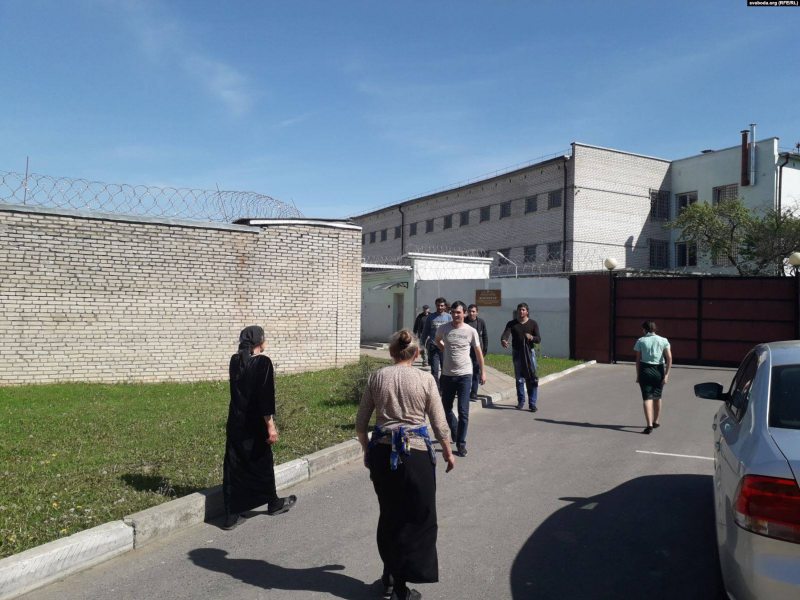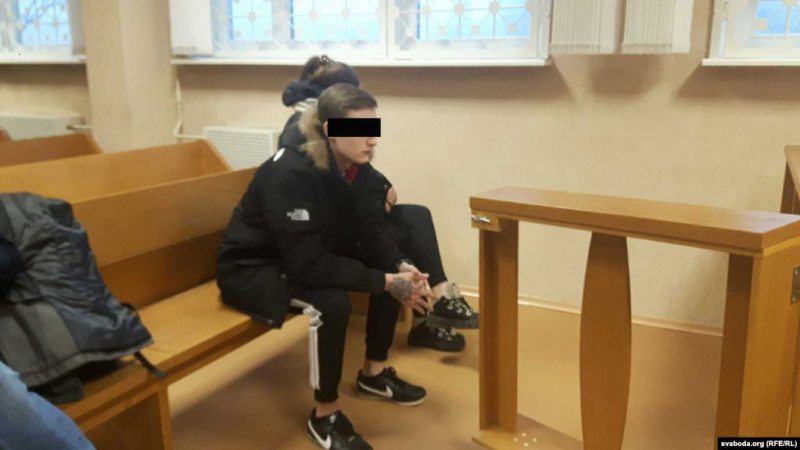Belarus in Amnesty International's annual human rights review
Belarus remained the sole executioner in Europe and the former Soviet region, passing three death sentences and executing at least three prisoners. Legislative amendments targeting the rights to freedom of expression and peaceful assembly further restricted, in particular, online and media activity and the right to protest. Credible evidence surfaced about hundreds of children and young people serving lengthy prison sentences for minor, non-violent drug-related offences. Vulnerable groups including Roma and LBGTI people remained at risk of discrimination although some positive steps were taken not to deport foreign nationals believed to be at risk of torture or other ill-treatment in their home countries.
Background
Economic growth was slow. Belarus remained heavily reliant economically on Russia, while tensions persisted over the price of imported commodities and Belarus’ resistance to further integration that could threaten its sovereignty. In June, Minsk hosted the 2019 European Games. Parliamentary elections in November showed low turnout and resulted in a parliament entirely loyal to the President. They were widely criticized by independent local and international observers for failing to uphold democratic standards. Numerous candidates regarded as disloyal to the regime were disqualified on questionable technical grounds, and all allegations of vote-rigging were ignored.
Death penalty
At least three men were executed in secrecy.
Alyaksandr Zhylnikau’s lawyer visited him in prison on 13 June and was told her client had “served his sentence.” At the end of the year, the family had still not received official information regarding his execution. No official information was available regarding his co-defendant, Viachaslau Sukharko, but it is believed he was also executed. The UN Human Rights Committee had requested a stay of execution for Alyaksandr Zhylnikau while it considered his case. Since 2010, Belarus has ignored 13 other such requests by this committee and executed prisoners whose cases were under consideration. Alyaksandr Asipovich was executed on 17 December, after being sentenced to death on 9 January.
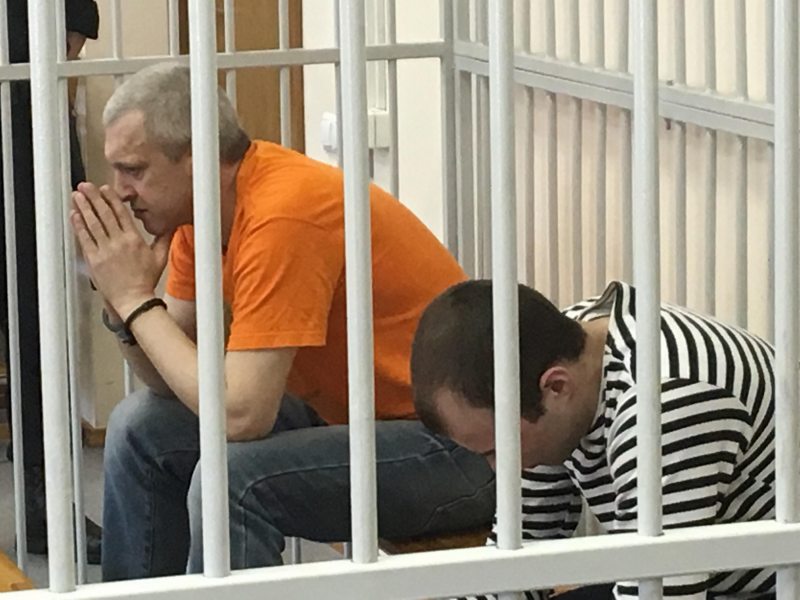
- Death convicts Aliaksandr Zhylnikau and Viachaslau Sukharko during an appeal hearing at the Supreme Court. May 29, 2018
Two other men were sentenced to death for murder in separate cases; Viktar Paulau and Viktar Serhil.
Freedom of Expression
Freedom of expression continued to be severely restricted in law and in practice. Government critics and other dissenting voices faced harassment and other reprisals from the authorities, including in administrative and criminal proceedings.
The changes to the Law on Mass Media which entered into force in December 2018, considerably tightened state control over online media. The law compelled registered and unregistered online media outlets to record the names of people who submit comments and disclose the relevant information to the authorities on request. It also made the owners of registered online media liable for the content of the comments.
Despite a hiatus in the harassment of journalists which coincided with the European Games in Minsk in June, the authorities continued to impose heavy fines on freelance journalists cooperating with international media. Article 22.9 of the Code of Administrative Offences (“unlawful creation and dissemination of mass media produce”) was used to penalize journalists providing content to foreign media unless accredited with the Ministry of Foreign Affairs.
Access to the independent news site Charter’97 remained blocked following the authorities’ move to restrict access to it in January 2018.
The harassment of anarchist and former prisoner of conscience, Dzmitry Paliyenka, continued. He was arrested and held in pre-trial detention from March to October, with four charges brought against him. Three were manifestly unfounded and were dropped during his trial, but he was convicted on tenuous grounds and given a non-custodial sentence for hooliganism which he was appealing at the end of the year.
Freedom of assembly
The right to freedom of peaceful assembly remained severely restricted, in law and practice, and those who attempted to exercise it faced arrest by police (often using excessive force), heavy fines and arbitrary detention.
Changes to the Law on Mass Events entered into force in January and established new procedures and fees for organisers of public events who were obliged to pay for policing, medical and clear-up costs. Not only did all assemblies still require prior notification and the authorities’ express permission, but the notification procedure was extended to certain, previously pre-approved, areas (designated typically in remote locations). Approvals for assemblies in other areas were in practice often refused or delayed.
Article 23.34 of the Code of Administrative Offences (“violating the rules of organising and holding mass events”) continued to be used to prevent people from exercising their right to peaceful assembly.
The unofficial Freedom Day celebrations in March were restricted. On 24 March, event organisers and peaceful protesters were detained during a pre-authorised event in Kievsky Park in Minsk which was attended by over 1,000 people. On 25 March, independent media and civil society representatives were prevented from holding a peaceful commemorative event at Kastryčnickaja Square in Minsk amidst heavy policing. At least 15 people were detained in unmarked police vehicles. All those detained on both days were later released without charge.
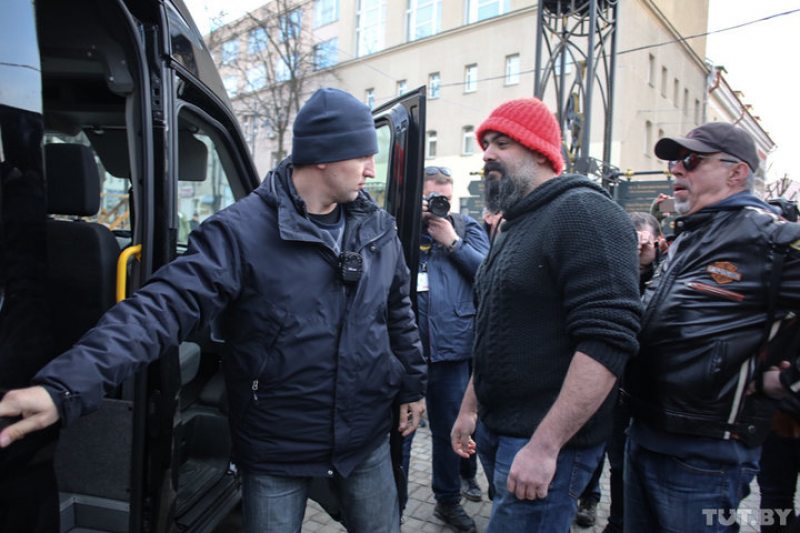
- Musicians Pavel Arakelian (center) and Ihar Varashkevich (right) taken away in a police bus after detention. March 25, 2019. Photo: tut.by
Despite calls from the UN Special Rapporteur on the human rights situation in Belarus for fundamental freedoms to be respected ahead of the parliamentary elections in November, dozens of people, including electoral candidates, were convicted or were facing administrative charges under Article 23.34 for their peaceful participation in unauthorized protests during the parliamentary election campaign and in December protests against possible deepening integration with Russia. Protestors were fined and/or sentenced to between five and 45 days’ administrative detention and repeated requests by lawyers to access some of those detained were arbitrarily denied.
Freedom of association
Obstacles to officially registering independent NGOs remained in place, with registration applications turned down for arbitrary reasons.
The repealed Article 193.1 of the Criminal Code, which criminalised participation in the activities of an unregistered organisation, was replaced with Article 23.88 in the Code of Administrative Offences which gave the police authority to fine “offenders” up to 1,275 Belarusian rubles (US$ 615) without judicial review.
Justice system - juvenile justice and fair trials
Credible evidence surfaced about hundreds of children and young people serving lengthy prison sentences for minor, non-violent drug-related offences. Among these, dozens and possibly hundreds were serving lengthy sentences for minor, non-violent drug-related offences committed when they were children. Many did not receive fair trials, with children as young as 16 imprisoned for to up to 11 years under Article 328 of the Criminal Code for illicit drug trafficking as members of criminal “groups”, often without other group members identified. Five UN Special Procedures, including the Working Group on Arbitrary Detention and the Special Rapporteur on torture and other cruel, inhuman and degrading treatment or punishment, expressed their concern to the authorities in October regarding the situation of children arrested and detained in relation to drug offences.
Excessive use of force and other human rights violations by law enforcement officials, including hours-long incommunicado detention and ill-treatment of children arrested for drugs, and fabrication of evidence through setup, were reported from earlier years. In August, a former commanding police officer from Mahilyou was sentenced to 10 years in prison, reportedly for framing alleged drug traffickers. His trial was closed and the indictment kept classified, depriving alleged victims of his crimes of a chance to have their convictions challenged.
Harsh conditions and discriminatory treatment in prisons of children convicted of drug offences were widely reported.
Discrimination
Several vulnerable minority groups continued to face discrimination and inadequate protection before the law, leading to a climate of fear and self-censorship.
Roma
The Roma community remained socially marginalized, especially in the areas of employment and education.
In May, following the suspected murder of a traffic police officer, the authorities in Mahilyou raided a number of Roma communities using excessive force to detain dozens of people, including children. According to local human rights defenders, over 50 men were arbitrarily detained for three days and released without charge. The police officer’s death was later attributed to suicide. Despite an official apology to the Roma communities, the authorities have not initiated any proceedings against those law enforcement officers who used excessive force.
LGBTI
Lesbian, gay, bisexual, transgender and intersex (LGBTI) people continued to face harassment including stigmatizing and discriminatory rhetoric from state officials.
In May, the Ministry of Internal Affairs published an article on its website which referred to “the destructive impact of the views and ideas of the LGBT community” and stated that “[a]lthough science has not established a direct relationship between pedophilia and same-sex sexual relations, the numbers speak for themselves”.
Following a verbal and physical attack on film-maker Mikalai Kuprich in August by a man who believed him to be gay, on 24 December, a court in Minsk found the assailant guilty of “malicious hooliganism” under Article 339.2 and sentenced him to 18 months’ restricted freedom (parole-like non-custodial sentence) and ordered him to pay financial compensation to Mikalai Kuprich. However, a request made by Mikalai Kuprich’s lawyer to amend the original charge of hooliganism to reflect the hate motive was rejected.
Rights of migrants and asylum-seekers
Belarus continued to forcibly return foreign nationals, including asylum-seekers, to countries where they were at risk of serious human rights violations including torture and other ill-treatment, in violation of the principle of non-refoulement.
In May, opposition activist and journalist from Ingushetia, Ismail Nalgiev, was arrested at Minsk airport. He was forcibly returned to Russia on 10 May despite fears that he was at risk of politically motivated prosecution, torture and other ill-treatment, and an unfair trial. In Russia, he was detained under politically motivated charges of “use of force against an official” in connection with the 26-27 March protests in Ingushetia.
On a positive note, on 17 June, Merhdad Jamshidian, an Iranian national, was given one-year residence status “on humanitarian grounds”. In September it was extended to five years. Mehrdad Jamshidian, resident in Belarus since 1993 and married to a local woman with whom he had three children, had spent 11 months in temporary detention following deportation requests from Iran where he would be at risk of torture and other ill-treatment, and the death penalty.
Source: amnesty.org



